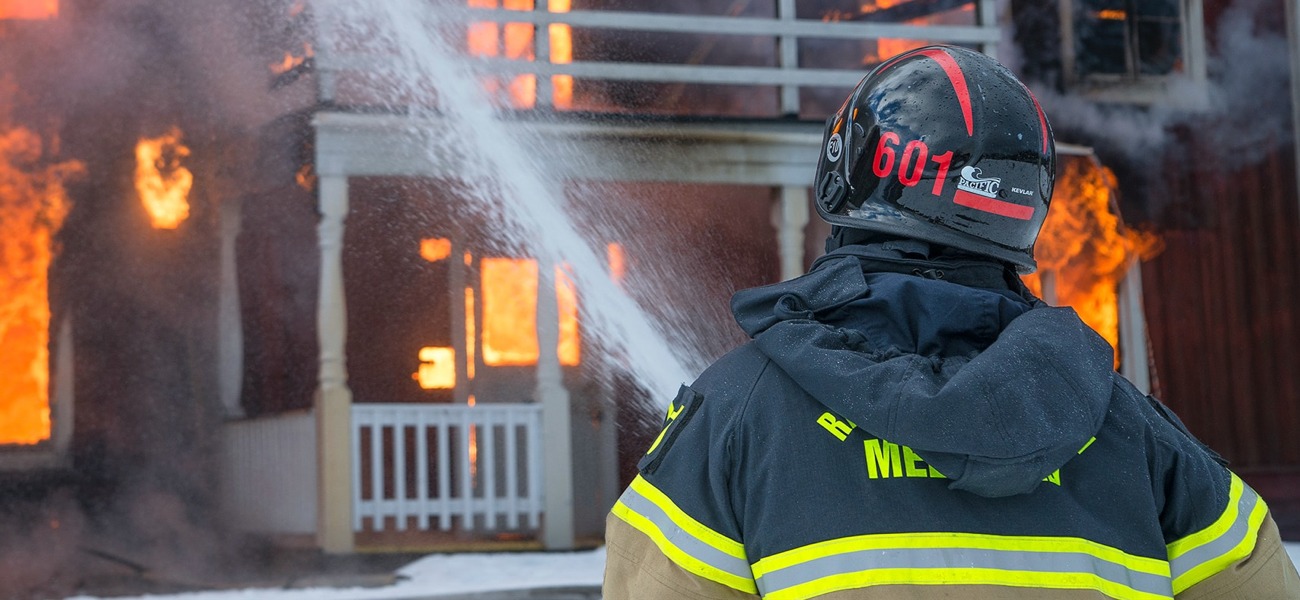You may have home insurance to protect yourself when the unexpected occurs, but what does responding to a disaster look like in practice?
1. Call your insurance company ASAP
You have insurance for a reason. If your home is experiencing damage or mechanical failure due to a storm that’s blown through, you need to contact your insurance agent as quickly as possible.
For Floods – Not every basement is waterproof. So, most insurance companies aren’t going to cover groundwater or surface water flooding. You may have additional coverage if you purchased a separate flood insurance plan through your insurance agent. How much you’ll get for the damage will all come down to your specific policy. If you have a strong policy with additional flood coverage, you may only be paying for the policy’s deductible. If you don’t have additional flood insurance, you may be looking at tackling those costs by yourself.
For Fire – Even if the home only sustains smoke damage, most insurance policies will cover fire-related damage to the home and the homeowner’s possessions. The fire could happen by accident, as the result of a storm, or even be part of a wildfire. All these should be covered under your home’s insurance policy and provide enough to repair, if not rebuild the structure. The only time a policy does not cover fire damage is if it was done on purpose, so don’t go burning your own house down!

2. Inform your mortgage service
Even when disaster strikes your home, you are still responsible for the mortgage. Call your mortgage servicer immediately to inform them what has happened. Sometimes these companies will work with you to skip a payment or adjust your payments. When calling your mortgage servicer, ask these questions:
- Can you waive late fees?
- Are there forbearance options?
- Can we temporarily reduce or suspend my payments?
If you miss payments without informing your servicer, you could incur fees and face potential foreclosure.
3. Minimize damage
Once the disaster is under control and you’ve had a minute to evaluate the extent of the damage, start trying to save as much of the house and your possessions as possible.
For Floods – First, prioritize securing items that cannot be replaced. Once you’ve drained the flooded area, consider renting a storage unit. A storage unit will give you space to lay out your items to be dried. Send fabric items to a professional washer. Oftentimes, flood waters contain harmful substances that can seep into fabrics. If it can’t be professionally washed, consider throwing it away.
For Fire – If anything can be salvaged from the home, try and save it. Yet, with fire damage, there will be lingering smoke damage that cannot be professionally cleaned.
For all purchases and services that result from the damage, make sure you keep the receipts. These can be turned in to your insurance provider for reimbursement.

4. Choose: Save it or Sell it
At this point, you’ve gone through the whirlwind of a natural disaster, your home isn’t the same and you’ve lost possessions, and you’re making many calls you never thought you’d have to make. Even though you’re working with your insurance company to collect the funds to rebuild, do you really want to go through the hassle? Choosing to rebuild your home will require more time and effort on your part since you’ll need to coordinate with contractors.
Plus, you may need to consider how livable your home currently is. If it’s inhabitable, you’ll need to vacate the premises until it’s rebuilt. At that point, you’re looking at staying at a hotel if it can be fixed quickly, staying with friends or family, or getting a lease for an apartment.
If your home is habitable, you’re looking at living among the damage and the dust of repairs.
To avoid the headache, you can sell your home as-is. Home buying teams like WCC Properties are ready to give you a fair, cash offer and close in as little as 48 hours. No one can plan when disaster strikes, but you make the most out of your situation with the help of WCC Properties



